Sleep Aid Addiction:
Lunesta and Ambien Dependence

Understanding Sleep Aid Dependence and Use
Prescription sleep aids such as Ambien, Lunesta and Sonata provide short-term relief for insomnia. These controlled substances can be habit-forming, leading to sleep aid dependence if used longer than recommended or off label. Sleep aid dependence can be challenging to face alone. Treatment for an addiction to Ambien or dependence on another sleep aid is a practical option worth considering.
While many take narcotic sleep aids safely under a doctor’s guidance, many develop sleep aid addiction. Addiction is not anyone’s fault. It’s an illness that can be overcome with the right treatment.
What You Should Know About Prescription Sleep Meds:
- Most prescribed sleep aids are controlled substances with a potential for addiction and dependence.
- Controlled (narcotic) sleep aids are not intended for regular, long-term use. Long-term regular use will lead to physical dependence and may lead to addiction.
- There are effective, non-narcotic solutions for long-term, persistent insomnia—medicines like Ambien are not your only option.
- Prescription sleep aids are hard to quit. Most people who are dependent on Ambien or similar drugs find that a medical detox makes the process less difficult and stressful.
Verify Your Insurance
Please fill out below confidential information and someone from our team will follow up with you to verify your insurance.
"*" indicates required fields
What’s The Difference Between Dependence and Addiction to Sleep Meds?
- Dependence: A physical adaptation where the body becomes used to a substance, leading to withdrawal symptoms if it’s stopped. It can happen even with prescribed use.
- Addiction: A behavioral condition marked by compulsive substance use despite harmful consequences. It often includes cravings, loss of control, and continued use that disrupts life.
In short, dependence is about the body’s response, while addiction involves the brain’s reward system and behavior. Not everyone who is dependent is addicted, but addiction almost always includes dependence.
There is no shame in either dependence or addiction. You or your loved one deserve help for either (or both).
How Do Prescription Sleep Aids Work?
Sleep aids like Ambien (zolpidem) work by enhancing the activity of GABA, a neurotransmitter that slows brain function. This calming effect helps you fall asleep faster and stay asleep longer. Ambien targets specific GABA receptors linked to sedation, making it effective for short-term insomnia relief. However, regular use can lead to tolerance, dependence, or disrupted sleep cycles if not carefully managed.
Ambien Quick Facts
Ambien, or zolpidem, slows brain activity to help you fall asleep. It’s intended for short-term use at the lowest effective dose. Long-term use increases the risk of Ambien dependence, daytime drowsiness and memory gaps. Misuse can escalate to Ambien addiction, so follow your prescription closely. Physical dependence can quickly become psychological dependence before you realize it and psychological dependence is addiction.
Lunesta Quick Facts
Lunesta, known generically as eszopiclone, helps you stay asleep all night. Prescriptions usually last no longer than four weeks. Prolonged use raises the chance of Lunesta dependence, tolerance and withdrawal symptoms like anxiety or rebound insomnia. Lunesta has similar habit-forming traits to Ambien and is a controlled substance not intended for long-term regular use.
Sonata Quick Facts
Sonata, or zaleplon, takes effect rapidly and wears off quickly, making it ideal for sleep onset. Short-term prescriptions minimize risks of sleep aid dependence and next-day grogginess. Like Ambient and Lunesta, Sonata is also a controlled substance, meaning it is in a different DEA category than regular prescription medications due to risk of abuse. Even when taken as prescribed, sleep aids like Sonata can lead to unwanted physical dependence and even addiction.
Benzodiazepines for Sleep
Some people rely on benzodiazepines, like Xanax, Restoril, or Halcion, for insomnia. Though effective, benzo dependence can develop, causing rebound anxiety, tremors or severe insomnia if doses are missed. Benzodiazepine dependence is serious and may require a medical detox in order to cease use safely. No one should ever abruptly stop taking a benzo they take regularly without consulting a physician for advice or admitting themselves for a medical benzo detox.
Sleep Aid Addiction and Dependence
Sleep aid addiction often develops without warning. Many begin occasional doses for stress or travel and find they can’t sleep without medication. Sleep aid dependence occurs as your brain adapts, requiring higher doses for the same effect. While misuse can escalate to Ambien addiction, many people become dependent accidentally, without fault or shame.
Common signs of sleep aid dependence or addiction include:
- Needing pills more often than prescribed to fall or stay asleep
- Experiencing withdrawal symptoms like irritability, anxiety or restless nights between doses
- Taking doses earlier in the evening or extending use beyond the recommended period
- Daytime fatigue, impaired focus and mood swings
Recognizing these signs early and seeking treatment for sleep aid dependence prevents escalation and restores healthy sleep patterns.
Medical Detox for Sleep Aid Dependence
Medical detox provides a safe, supervised environment to manage withdrawal from Ambien addiction or Lunesta dependence. At Clear Path Recovery Center, our clinical team creates taper schedules and uses non-addictive medications to ease discomfort. Treatment for sleep aid dependence begins by stabilizing sleep patterns and ensuring you rest while your brain chemistry rebalances. You’ll find restful, monitored detox sets the stage for deeper healing and reduces the urge to resume risky sleep aid use.
Sleep Aid Addiction Treatment
Treatment for sleep aid dependence combines therapy, education and lifestyle changes. While not everyone needs residential care, those with Ambien addiction or co-occurring anxiety often benefit from structured programs. Our treatment for sleep aid dependence includes:
- Cognitive Behavioral Therapy to address thought patterns fueling sleep aid addiction
- Mindfulness and relaxation techniques that reduce reliance on medication
- Sleep hygiene coaching on routines, light exposure and diet to improve natural sleep
- Family or couples counseling to support loved ones and rebuild trust
Through individualized care plans, treatment for sleep aid dependence helps you reclaim healthy sleep without lifelong medication use.

Talking to Loved Ones About Sleep Aid Misuse
Discussing sleep aid dependence can feel delicate, especially if it involves a parent or spouse. Approach the topic with empathy, focusing on concern rather than blame. You might say, “I’ve noticed you seem more tired during the day since starting Ambien, and I’m worried about how it’s affecting you.”
Offer to research treatment for sleep aid dependence together or call a medical professional for guidance. If someone resists help yet shows escalating signs of sleep aid addiction, a gentle intervention led by a counselor can set compassionate boundaries and arrange same-day admission to detox or therapy.
Help for Sleep Aid Addiction Taking the Next Step
If you or someone you care about is struggling with Ambien addiction, Lunesta dependence or general sleep aid addiction, the compassionate professionals at Clear Path Recovery are ready to help. Treatment for sleep aid dependence is available, comfortable and effective, guiding you back to natural, restorative sleep.
Call our confidential helpline at (417) 448-6488 or complete our secure online form to learn more about treatment for sleep aid dependence and start your journey to healthier sleep and renewed well-being.
Take the First Step Toward Clarity
Let us know how we can help and we’ll reach out to you soon!
